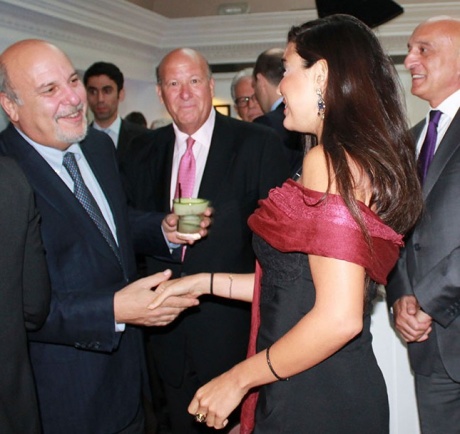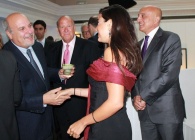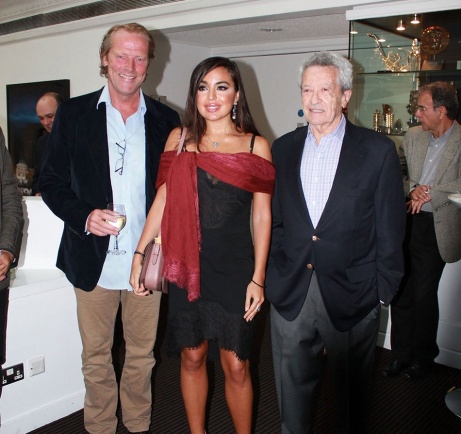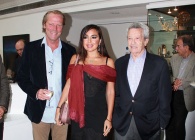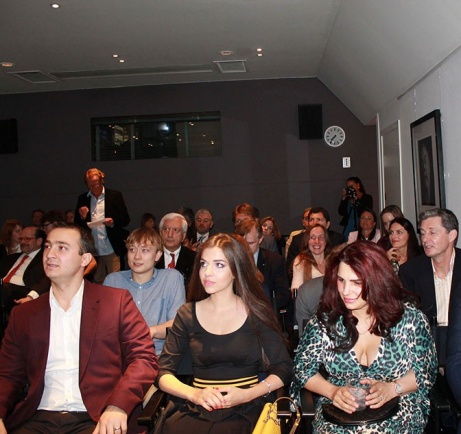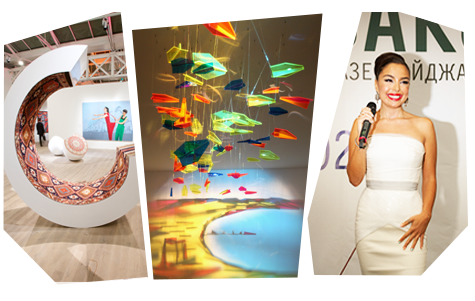
We've been setting this exhibition up for nearly two years. I believe that its language – the language of Art – eloquently conveys the great accomplishments our country has made in all spheres of achievement.

Vice-President of the Heydar Aliyev Foundation Leyla Aliyeva has attended the London premiere screening at the British Academy of Film and Television Arts (BAFTA) of the documentary film Endless Corridor – narrated by renowned British actor Jeremy Irons.
This examines the events surrounding the Khojaly Massacre, when 613 men, women and children were killed on 25–26 February 1992.
Leyla Aliyeva, the initiator and driving force behind the Justice for Khojaly campaign, spoke afterwards about the importance of raising awareness about the tragedy. “I am pleased that this film has been made. Endless Corridor is a moving documentary recalling the unimaginable horrors of the Khojaly Massacre, shedding light on this awful chapter of Armenian aggression,” she said. “We must never again see a repetition of such crimes.”
Aleksandras A. Brokas, the documentary’s Lithuanian Producer/Director, and Gerald Rafshoon, US Co-Producer, also attended the screening, together with international television executives and prominent actors such as Anne Archer (BAFTA winner from Fatal Attraction and the Harrison Ford Jack Ryan films) and Iain Glen, one of the stars of the popular television series Game of Thrones.
Mr Brokas, who worked for nearly five years on the documentary, noted that he worked with film professionals from 15 countries in order to provide an independent point of view on the situation in the region. As a Lithuanian citizen, he said: “The way to freedom and independence is very similar in all post-Soviet countries – it costs a lot. The tragedy of Khojaly tells the story of how cynical and inhuman people decided on the destiny of others.”
Meanwhile, Gerald Rafshoon, White House Communications Director under the Jimmy Carter administration and producer of the current successful play Camp David in Washington, pointed out that the Nagorno-Karabakh conflict remains unresolved, despite international efforts. He said: “Thus, I hope the film will re-focus attention about this besieged region that has been ravaged for more than two decades.”
The film follows Lithuanian journalist Ricardas Lapaitis on a trip back to Azerbaijan 20 years after he covered the Nagorno-Karabakh conflict and Khojaly Massacre as a war correspondent. This is a story, he says, that has haunted him since.
The documentary sees him reunite with survivors of the tragedy, who recall their heart-rending stories as they escaped Armenian bombardment, losing many loved ones along an Endless Corridor seeking safety.
It also hears from the perpetrators of the massacre, Armenian commanders, who examine their war strategies and reasoning. Despite several resolutions by the United Nations and other international bodies calling for its unconditional withdrawal, Armenia continues to occupy Nagorno-Karabakh and seven surrounding districts to this day.
The completed film is now being screened and distributed by international broadcasters.
The British Academy of Film and Television Arts (BAFTA) supports, promotes and develops the art forms of the moving image – film, television and video games – by identifying and rewarding excellence, inspiring practitioners and benefiting the public. As the leading charity in the UK supporting the art forms of the moving image, BAFTA ensures that the very best creative work can be accessed and appreciated by the public.
Aleksandras A. Brokas is a Lithuanian producer and film director. After graduating in international film studies at the Helsinki Metropolia University of Applied Sciences and the Lithuanian Music and Theatre Academy, he initially focused on human rights and the evolution of the human mind. After a successful co-operation with the Soros Foundation, Scandinavian and Baltic TV channels on productions about women’s rights in the post-Soviet region, he began focusing on the Caucasus, culminating in the Endless Corridor documentary.

